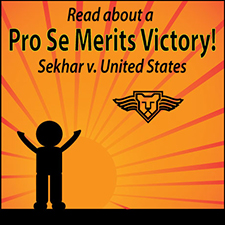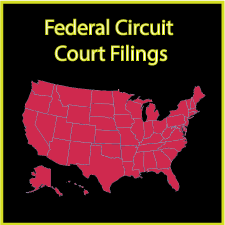Petition of the Month, January-February 2015:
Robert H. Schuller and Robert Harold Inc. v.
Karen Naylor and Crystal Cathedral Ministries

The Supreme Court Press “Petition of the Month”TM for January 2015 is Robert H. Schuller and Robert Harold Inc. v. Karen Naylor and Crystal Cathedral Ministries, Supreme Court Dkt. No. 14-945, a case arising out of the Ninth Circuit Court of Appeals. The petition was filed by attorneys Becky James and Jessica Rosen of the firm James & Stewart,, located in Pacific Palisades, California.
Questions Presented:
1. Section 502, subsection (b)(7) of title 11 of the United States Codes instructs bankruptcy courts to limit a “claim of an employee for damages resulting from the termination of an employment contract” to the amount of compensation provided under the contract for one year. Does this one-year cap apply to limit a claim of a retiree for payment of unpaid vested retirement benefits, where the retiree has already done the work and earned the benefits?
2. Do general agency law principles apply in interpreting the terms “employee” and “employment contract” in 11 U.S.C. § 502(b)(7), and if so, can those principles be stretched to include within “employment” a situation where the purported “employer” has no control over whether or how any work is performed and the purported “employee” retains complete discretion over whether to provide any services at all?
Dr. Robert H. Schuller is the legendary pastor, Christian educator, author, motivational speaker, and founder of the Crystal Cathedral church in Garden Grove, California. For over 25 years, Dr. Schuller spoke to, inspired, and motivated millions of people globally through his weekly television program The Hour of Power. Starting with only $500 in assets. Dr. Schuller first opened the Garden Grove Community Church in a drive-in movie theater, preaching to his congregation under the blue sky. As the congregation expanded, Dr. Schuller commissioned the Crystal Cathedral, an architectural marvel made of glass, seating 2,736 persons, with a bell tower soaring 72 meters high. When Dr. Schuller began the process of filing his petition, he had engaged an old line legal printer to help him out. However, the project seemed to be stalled, and the timely filing of his petition was in jeopardy. As the deadline loomed, he and his legal team turned to Supreme Court legal printer Supreme Court Press, who quickly got the project under control, and delivered an exquisite document to the court. Dr. Schuller offered these kind words of praise, “Producing a petition for the Supreme Court is complex due to the Court's exacting document requirements. The legal printer we had initially hired was having difficulty fulfilling the job. As the deadline drew near, we switched vendors to the Supreme Court Press. The Supreme Court Press produced a beautiful document, under a short deadline, at a reasonable price, and exhibited positive professionalism in the process. I highly recommend the Supreme Court Press as a legal printer." |


---Bryan-Krumm.png)
---ZoeSpencer.png)


